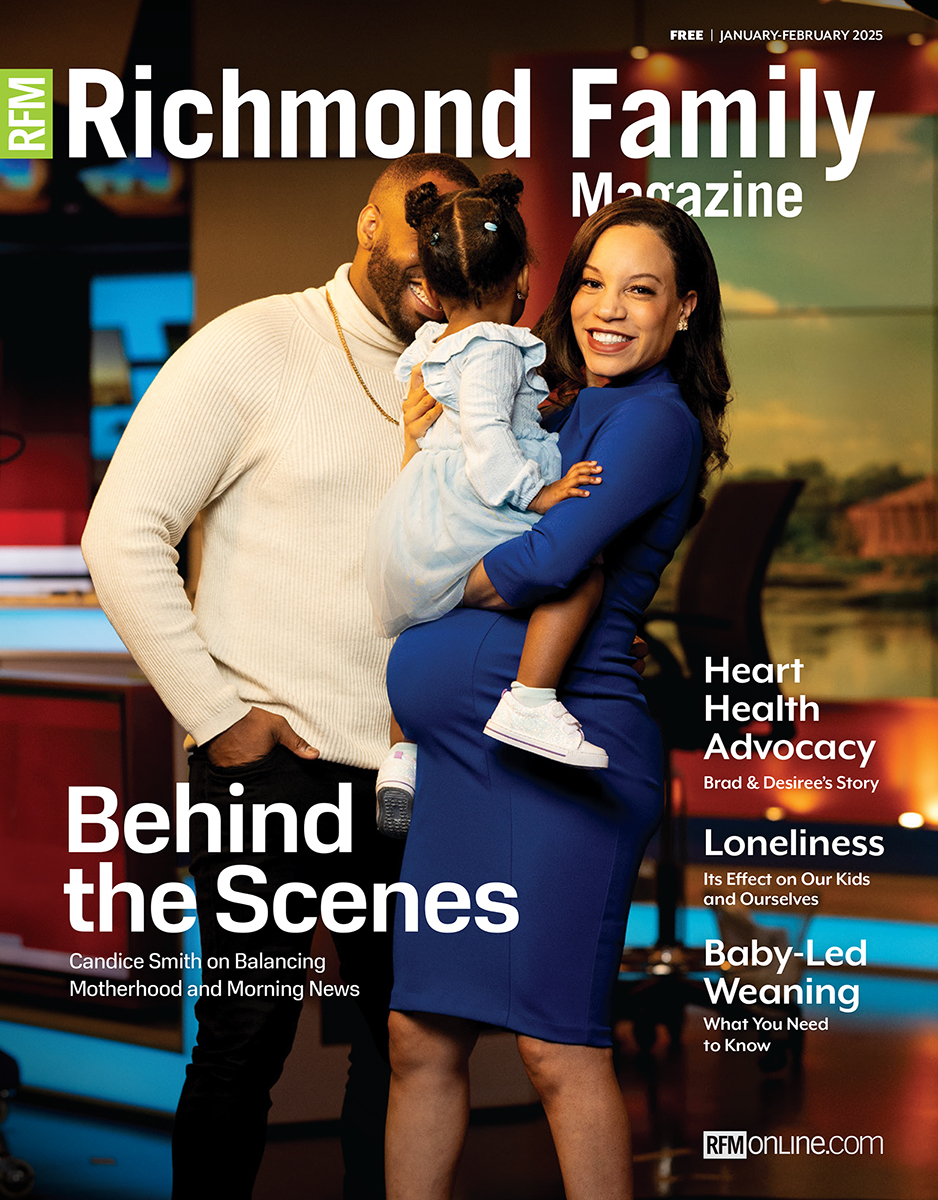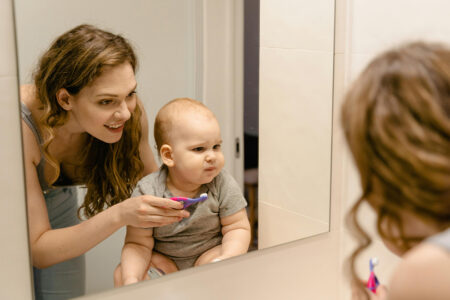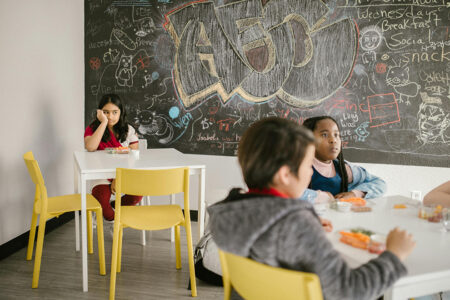by Lisa Coates
Director of Children & Youth Services at SOAR365
The holidays can be a time full of lights, laughter, family fun and lots of great activities. Navigating all this fun — whether at home, at loved ones’ houses, or out and about in the community — can be challenging for anyone. For children with disabilities, there might need to be an extra layer of planning to ensure a successful and rewarding experience.
Here are a few tips and Richmond-area resources to make this planning easier for families and caregivers of children with disabilities.
Establish a safe space: Whenever you visit a person’s house (or even at your own house), establish a safe zone for your child so that they can retreat and be alone if desired. This can be a room in the house, an outside area, or a desk or table they can crawl under for a time.
Prep friends and family: Talk to family members ahead of time. Discuss your child’s needs, and gently but firmly tell them what your plans are. Be sure to let them know that this will make the whole experience better for everyone. Ask for their support.
Take two cars: It is always a good idea to have an escape plan for holiday outings. If possible, bring two cars to gatherings or activities so that one adult can leave if your child needs to get away from the crowds.
Don’t be afraid to say no: People who care about you and your child will understand and not be offended if you decline an invitation. Maybe opt for a quiet family night instead.
Manage smells: For individuals with heightened sensory awareness, smells can be a good or bad thing. It’s easy for smells to get overwhelming, especially added perfumes that family and friends may wear for special gatherings, or the strong smell of cinnamon- and holiday-scented candles. Mention this to your host in advance and have a plan to move outside if the smells become too overwhelming too quickly.
Prepare a bag of activities: When visiting friends or relatives, fill a backpack or tote bag with things your child finds comforting or enjoys playing with (including any sensory items, like fidgets or a weighted blanket). Keep this bag in the trunk of your car during the holidays so it’s always with you, even during unplanned stops and visits.
Use social stories and visual aids: Social stories model a variety of daily interactions and help children know what to expect when visiting a new place or enjoying special activities, like exchanging presents. Visual aids, such as picture schedules, can prepare a child for the day’s events by showing them step by step how the day will unfold.
Manage sights and sounds: Sounds such as music, crowds or even the ripping of wrapping paper can become overwhelming. Consider using noise cancellation headphones or using wrapping alternatives (like cloth or hiding the present to be found) to support your child. Sunglasses can also be helpful, whether outdoors or in rooms with bright lights.
Bring comfort foods: Reduce mealtime stress by packing familiar foods, drinks and snacks. Discussing this with your host ahead of time can build understanding and help prevent any hurt feelings, should your child decline (or be unable) to eat the food they prepared. If a crowded table is overstimulating, you can always take your plates outside or find a calm, quiet corner to eat in instead.
Think outside the box: If the surprises or social pressures of gift-giving create too much anxiety, ask the giver if it would be ok to let your child know what they are receiving ahead of time. This way, you can prepare and practice their reaction at home. Taking gifts home to open later is another great option and creating a gift registry ahead of time can also ensure success.
Remember it’s okay to be different: It’s easy to give in to the idea that no holiday is complete without certain quintessential experiences. This is not true. Create alternative experiences and traditions that fit your family. This makes it much more enjoyable for your family, and there is no need to conform to the demands that an occasion puts on you or your child.
Be gentle with yourself: As a parent with a child with disabilities, it can be very difficult not to put a lot of pressure on yourself. The holiday season is stressful enough, so give yourself grace.
[vcex_divider color=”#dddddd” width=”100%” height=”1px” margin_top=”20″ margin_bottom=”20″]
Many places in the Richmond area are completely accessible for individuals with disabilities.
Children’s Museum of Richmond offers accessibility and inclusivity at both of their locations (Chesterfield and Downtown). A fun place to visit over the holiday season.
Special Nights are also back! The museum hosts a FREE night for families with children with disabilities on the third Friday of each month from 5 to 7 p.m.
Science Museum of Virginia Offers accessible and inclusive resources for visitors, including sensory backpacks.
They also offer a reduced membership rate for low-income families through the national Museums for All initiative. For $20, two adults and all children under 18 in the household receive one free year of museum admission.
Beyond Boundaries Provides outdoor adventures for children with disabilities. Scholarships available.
ComedySportz Richmond Offers sensory-friendly improv comedy.
For more information about these tips, contact Lisa Coates, SOAR365 Director of Children & Youth Services, at lisa.coates@soar365.org or (804) 665-1237.
SOAR365 is a Richmond-based, not-for-profit organization that was founded in 1954 by local families determined to find a better way to care for their loved ones with disabilities. SOAR365 employs about 260 individuals, including over 100 who have a disability. Our wide range of programs and services are designed for individuals and families who are coping with the daily, real-world challenges of living with a disability. We have a profound impact on over 1,500 individuals and families who receive our help in a typical year. For more information, please visit www.SOAR365.org and our social media channels.







